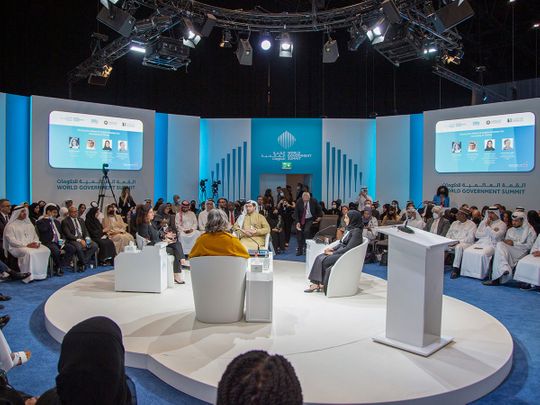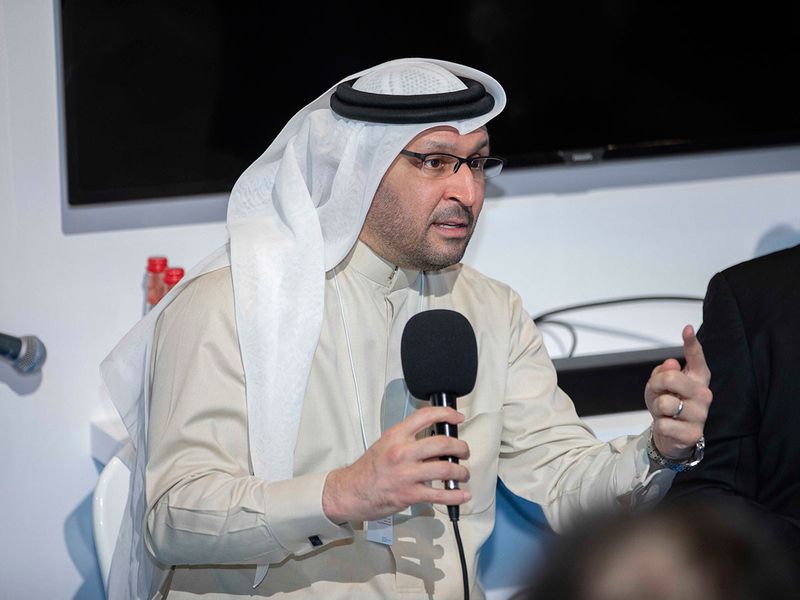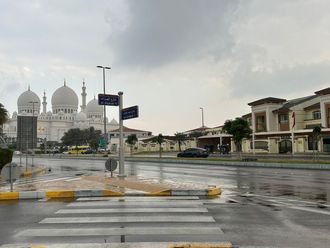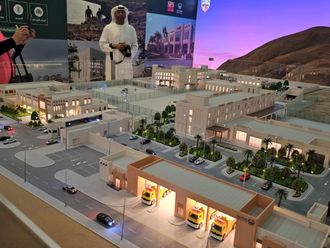
Dubai: Dubai Cares, the UAE-based global philanthropic organisation, has launched a new education ecosystem that is set to transform education globally by placing children, including those who are out of school, and youth at the centre of human development.
Part of Mohammed Bin Rashid Al Maktoum Global Initiatives, Dubai Cares is also formally associated with the United Nations Department of Global Communications (UNDGC). The entity said the launch of the comprehensive and action-oriented guiding framework for a future-focused and human-centric ecosystem is in response to global calls to action on the most pressing education challenges, and following an extensive and inclusive consultative journey.
The launch of the framework, which was announced by Dr. Tariq Al Gurg, CEO and vice-chairman of Dubai Cares, and the chairman of the Global Council on SDG 4, during a high-level panel discussion in Dubai, will have a far-reaching impact.

Titled “Driving the Wheel of Implementation for Humanity to Thrive,” the ‘SDG in Action’ event was first hosted by the SDGs Global Councils at the just-concluded Expo 2020 Dubai. The panel explored the plans of the different councils on how to accelerate the successful implementation of the SDGs.
The new education ecosystem is set to be unveiled on the sidelines of the UN General Assembly in September 2022. It will be held during the UN Transforming Education Summit that will be convened by the UN Secretary-General, António Guterres.
Focus on out-of-school kids
“The initiative puts humanity back at the heart of education as it shifts the emphasis towards transforming global education and building humans ready for the future in terms of opportunities, by instilling core competencies that will enable them to fulfill their utmost potential.”
The ecosystem caters to the evolving needs of children and youth around the world in terms of technology, connectivity, inclusivity, core competencies, skills, values, leadership, and gender equality among others.
It also focuses on out-of-school children by facilitating their access to formal learning opportunities through multiple pathways culminating in certification and accreditation that enable them to access similar opportunities as their peers who went through formal schooling.
This framework comes to light following extensive discussions and engagements with country partners, educational institutions, multilateral organisations, UN agencies, global mechanisms and networks, and the private sector over the past five years.
The last six months were the most crucial period, as Dubai Cares hosted over 400 consultations at Expo 2020 Dubai that fed into the system. Moreover, the Dubai Cares Pavilion at Expo 2020 Dubai, under the theme of “The Future is Human”, provided a great platform to engage visitors in meaningful discussions around the future of education.
In addition, the discussions at the RewirEd Summit, a global education gathering that took place at Expo 2020 Dubai in December last year with the participation of over 500 international speakers, have been guiding and feeding into this framework.
Over the next 6 months, Dubai Cares is set to host further consultations with key education stakeholders, aimed at strengthening the foundation of the framework, ahead of its unveiling at the UN General Assembly this September.
Global movement
The organisation is inviting the global community to join these consultations and contribute to this global movement working towards transforming the current education system.
Reem Al Hashimy, UAE Minister of State for International Cooperation, said: “This new education framework that Dubai Cares has designed aims to transform the way children and youth are learning in order to put them in the driving seat to shape, not only their own future, but also their communities and countries. The bold, collaborative and global approach of this framework reflects the very essence of all Expos, that are known for creating new and innovative solutions for the prosperity of humanity.”
Innovative ecosystem
Commenting on the urgent need to transform education globally, Al Gurg said: “Today’s education system has remained stagnant following the same fundamental principles for the last 120 years. The current crisis-laden environment requires a new global education system that puts humanity at the heart of education – an ecosystem that can leverage our knowledge, skills, and passions to influence educational and social outcomes, and more importantly, to put students at the center of human development.”
“Through this new education ecosystem, children and young people will be empowered to thrive in an ever-changing world. We made it clear at the RewirEd Summit that if we were to be the generation to truly transform education, then the time to act is now. We look forward to seeing governments, private sector, UN agencies, educational institutions, NGOs, youth and all other key actors rallying around and contributing to this ecosystem as well as delivering it on a wider scale to ensure a prosperous and sustainable future for all.”
The framework is built on a new system of partnerships and stakeholder engagement among new education actors in a way that enables every community, city or country to adopt, adapt, customize and transform their systems in a way that responds to their aspirations.”
Inclusive communication, decision-making
“As a result, the transformation of education is not a conversation for education experts or decision-makers alone, but it is a space where teachers, education leaders, ministries of economy, finance, labour, and youth along with employers and members of the private sector not only communicate with one another, but also directly contribute to the contextualization of education, while simultaneously working on creating opportunities for children and youth both inside the classroom and the world beyond.
As part of its participation at the World Government Summit, Dubai Cares also hosted a high-level panel titled “The Future of Education: How can we transform existing education systems, make them future-proof, and who should lead the way?”.
Key speakers at the panel included Jakaya Kikwete, Global Partnership for Education (GPE) Board Chair and former President of Tanzania; Catherine Russell, Executive Director of UNICEF; David Sengeh, Minister of Basic and Senior Secondary Education in Sierra Leone, and Leonardo Garnier, UN Special Advisor on the Transforming Education Summit. The panel explored the role of governments in transforming current education systems to be more efficient, equitable, and resilient as countries now have a real opportunity to accelerate learning recovery.










